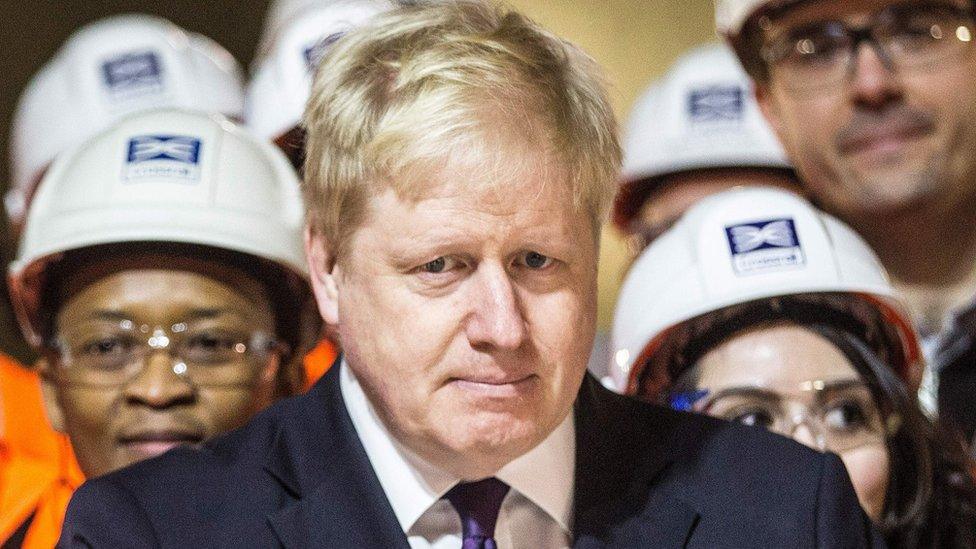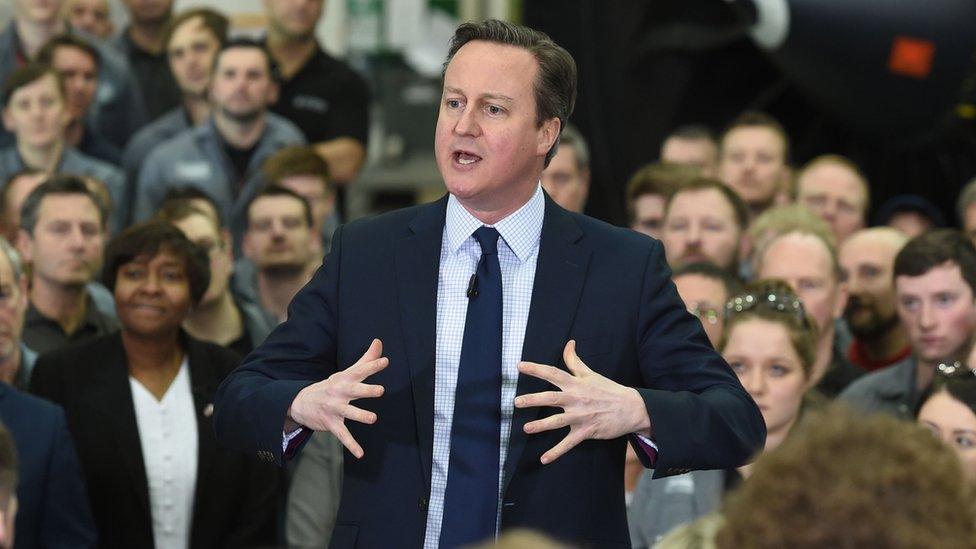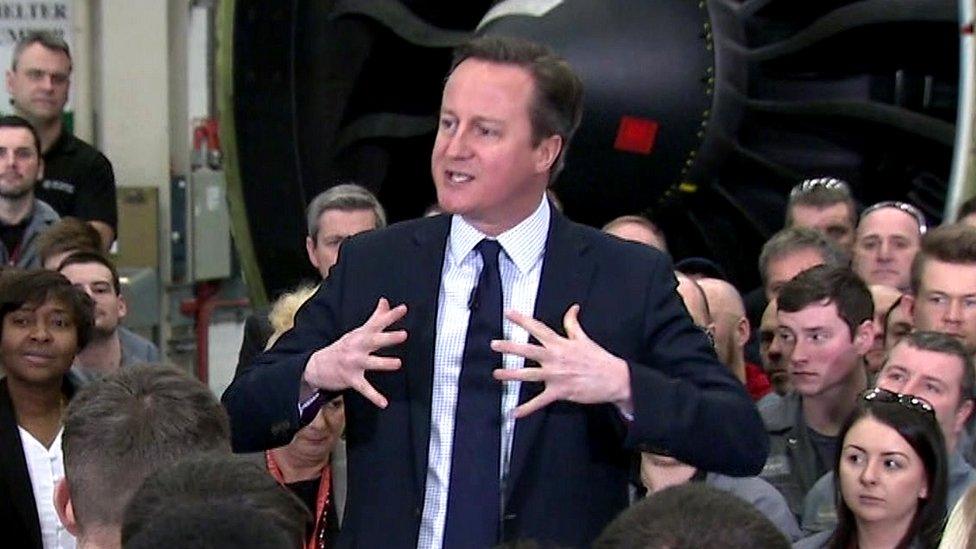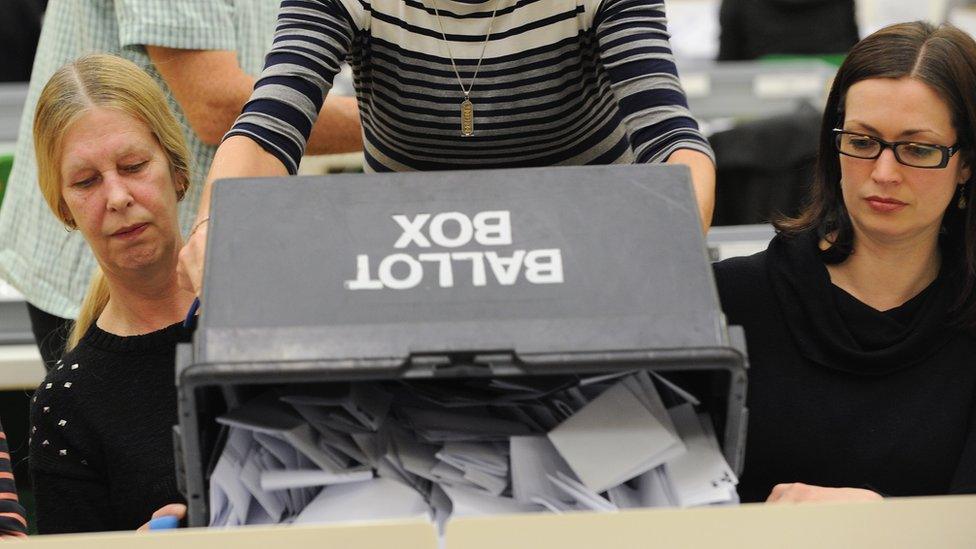Boris Johnson: 'Out is out' in EU referendum vote
- Published

Boris Johnson had written that the EU only listened to a country "when it says 'no' "
London Mayor Boris Johnson has clarified his position on the idea that a vote to leave the EU could force Brussels to give Britain a better deal and trigger a second referendum.
Mr Johnson had previously suggested that only by voting to leave would the UK "get the change we need".
But in The Times, external, Mr Johnson stated categorically: "Out is out".
Meanwhile finance ministers from G20 countries have raised concerns with the chancellor about a possible Brexit.
The UK will vote on whether to Leave or Remain in the EU on 23 June.
How plausible is second EU referendum?
Mr Johnson wrote in his Daily Telegraph column on Monday, external that "EU history shows that they only really listen to a population when it says 'no' ".
This claim was widely interpreted as suggesting he would then advocate a second referendum.
But on Saturday, Mr Johnson said in the Times: "What I want is to get out and then negotiate a series of trade arrangements around the world."
Asked whether he had given up on the idea of a second referendum, Mr Johnson added: "I don't think it would be necessary."
He told the paper the vote was a golden opportunity "to take back control, to renew our approach to law making, to strike new trade deals around the world, to galvanise our economy and politics and to give people confidence back in their country".
"The advantage of a 'no' vote is that it would jolt the whole system in Europe," he said.
"For their own sake, they need to look at the way they are doing things."
Chinese and American officials and the head of the IMF, Christine Lagarde, discussed the referendum with Chancellor George Osborne on Friday in Shanghai during the G20 summit, where finance ministers from the world's biggest economies discuss key issues in the global economy.
The BBC's political editor Laura Kuenssberg said the ministers were expected to raise an official warning of the risks of an Out vote when the final communique of their meeting was published later.

David Cameron said claims an Out vote could lead to new concessions to the UK were a "complete fiction"
Lord Howard, who led the Tories between 2003 and 2005, said on Friday that EU leaders would have to think again about far-reaching reform in the immediate aftermath of an Out vote.
The BBC's political correspondent Chris Mason said the suggestion an Out vote could lead to a second referendum had the political advantage of reassuring voters who were tempted to leave the EU but were nervous about the potential consequences.
But Prime Minister David Cameron dismissed the idea as a "complete fiction".
He added: "It is a very simple question on the ballot paper - you either stay in the EU or you leave."
Chancellor George Osborne has said if Britain voted to leave the EU it would cause a profound economic shock.
He said it was the "very worst time" for Britain to take such an "enormous economic gamble".
- Published26 February 2016

- Published26 February 2016

- Published30 December 2020
